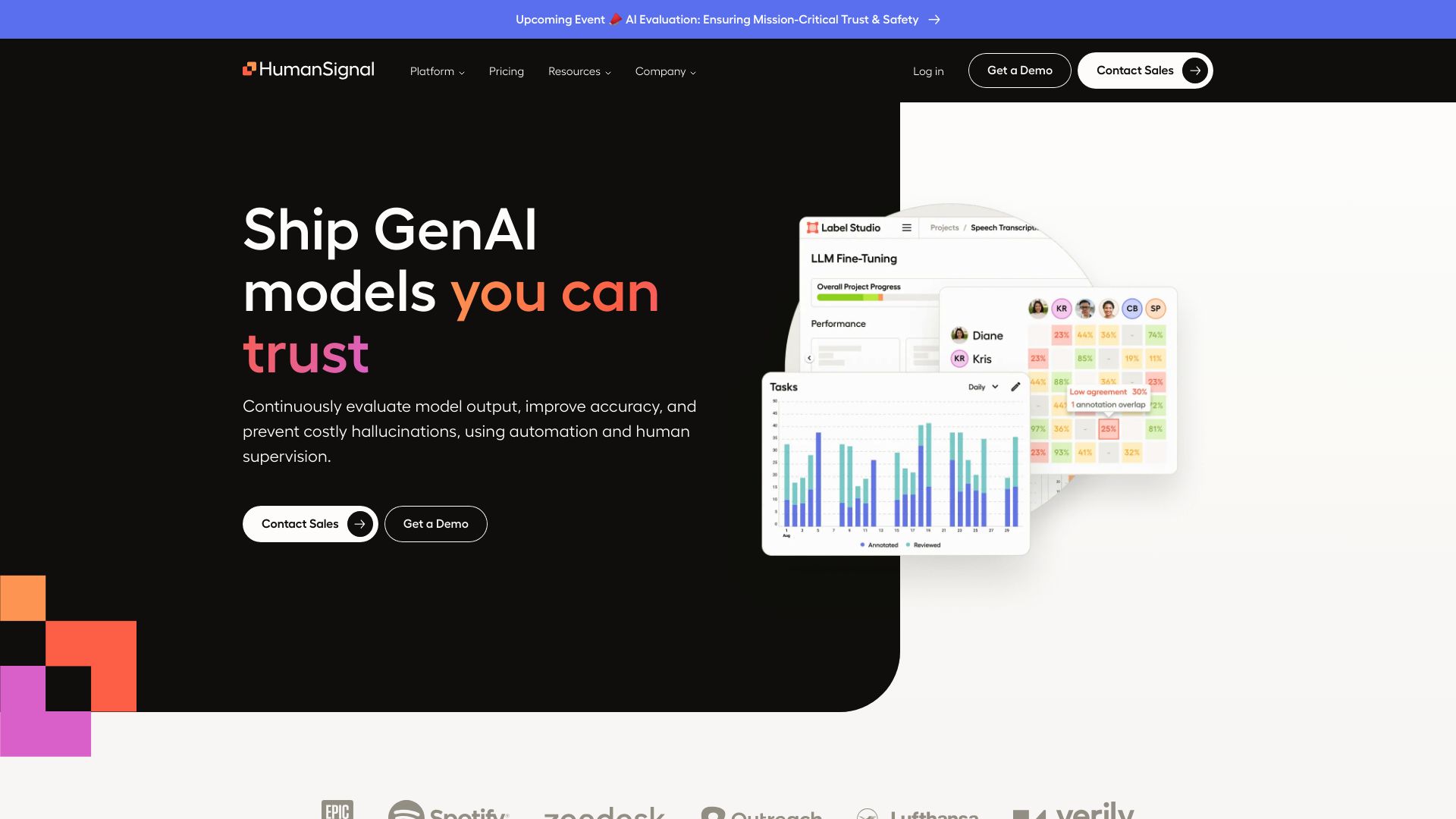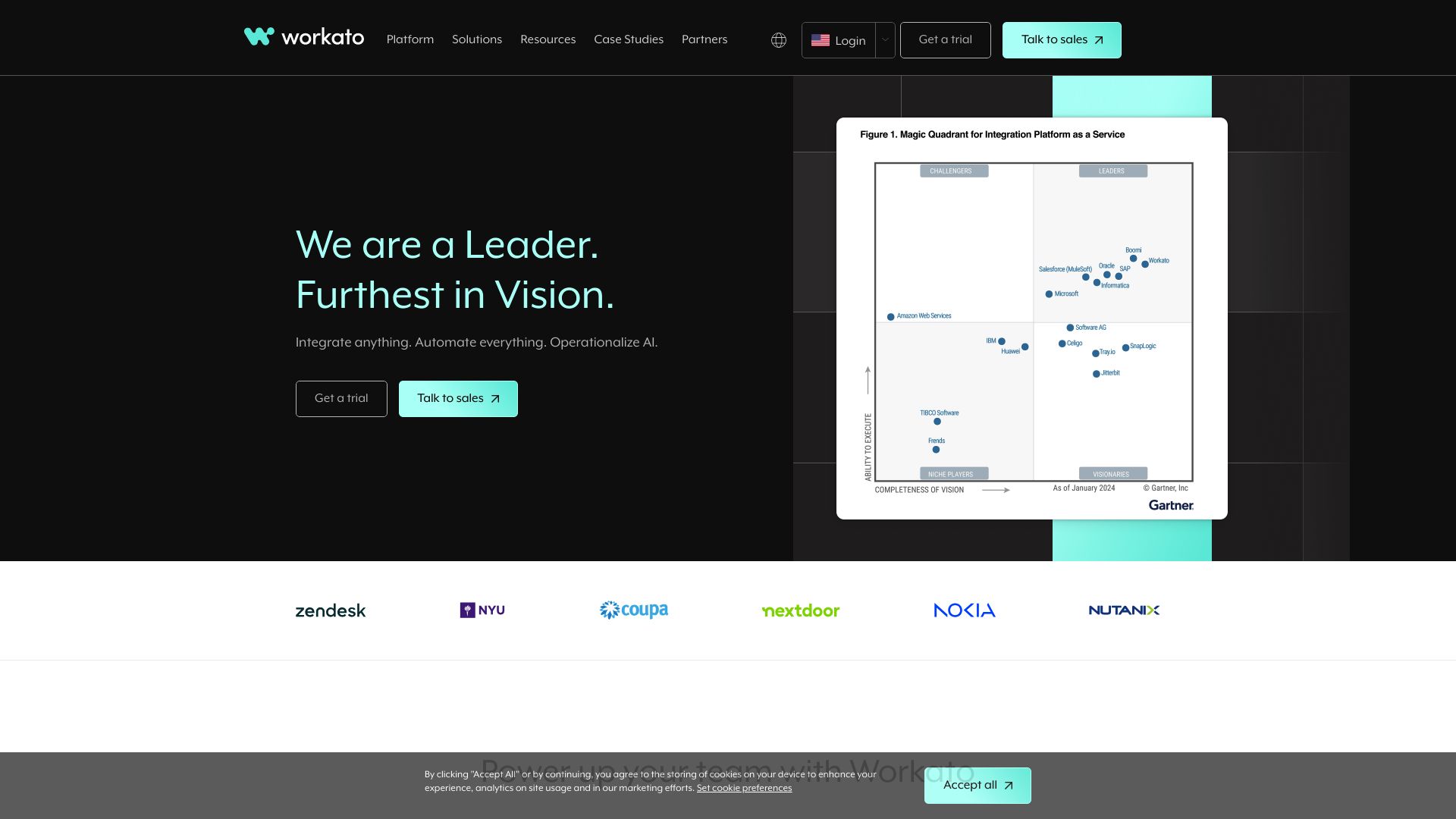Adala vs. Workato: AI and Automation Titans Compared
The AI landscape teems with tools promising to revolutionize data labeling and workflow automation. Adala vs. Workato stand out as powerful contenders, each offering unique approaches to these challenges.
Adala’s open-source framework empowers developers to build autonomous data labeling agents, while Workato’s low-code platform streamlines complex business processes. This comparison delves into the strengths and limitations of both platforms, examining their core features, AI capabilities, and target use cases.
We’ll also introduce SmythOS, a comprehensive solution that combines the best of both worlds and pushes the boundaries of AI development and automation. Whether you’re a developer seeking customizable AI solutions or a business leader looking to optimize workflows, this analysis will guide you through the nuances of these cutting-edge platforms and help you make an informed decision for your AI and automation needs.
Adala Overview
Adala revolutionizes data labeling with its open-source framework for building autonomous AI agents. This innovative platform empowers developers to create, train, and deploy intelligent agents capable of learning and improving their data labeling skills through iterative processes.
Adala revolutionizes data labeling with its open-source framework for building autonomous AI agents… capable of learning and improving their data labeling skills through iterative processes.


Adala’s core strength lies in its use of large language models (LLMs) as the runtime for AI agents. These agents acquire specialized skills such as text classification, summarization, and question-answering. The modular architecture allows for easy extension and customization, making it adaptable to various data processing tasks.
A key feature of Adala is its human-in-the-loop process. Agents learn from labeled ground truth datasets and can request human feedback to refine their skills. This tight feedback loop ensures high-quality results while increasing efficiency and reducing costs associated with traditional data labeling methods.
Agents learn from labeled ground truth datasets and can request human feedback to refine their skills. This tight feedback loop ensures high-quality results…
While Adala excels in creating autonomous data labeling agents, it lacks some features found in more comprehensive AI development platforms. There’s no visual builder or no-code editor, which may limit accessibility for non-technical users. However, its API-driven approach and extensibility make it a powerful tool for developers and data scientists.
Adala’s focus on reliability and trustworthiness in AI agent development addresses growing concerns about AI transparency and ethics. By emphasizing explainable AI and providing tools for testing and debugging, Adala positions itself as a responsible choice for organizations prioritizing accountable AI systems.
Workato Overview
Workato empowers businesses to automate complex workflows through its intelligent integration and automation platform. The software combines robust workflow automation capabilities with AI-powered tools, enabling organizations to streamline processes across various applications and systems.


Workato’s platform stands out for its low-code/no-code approach, making it accessible to both technical and non-technical users. The visual interface allows for quick creation of complex automations, while pre-built connectors and community recipes accelerate development. This accessibility democratizes automation, enabling teams across an organization to contribute to process improvement.
Workato’s platform stands out for its low-code/no-code approach, making it accessible to both technical and non-technical users.
The AI capabilities of Workato, developed in collaboration with OpenAI, enhance the platform’s functionality. AI by Workato offers features such as text analysis, categorization, and translation without compromising data privacy. These AI-driven tools integrate seamlessly with existing workflows, augmenting human decision-making and automating repetitive tasks.
Workato caters to enterprise-level requirements with its emphasis on scalability, security, and governance. The platform supports robust data storage through Table Storage and offers customizable user interfaces. However, the complexity of initial setup and potential high costs for large-scale implementations may present challenges for smaller organizations or those with limited budgets.
While Workato excels in many areas, users should be aware of certain limitations. The platform imposes rate limits on AI actions, which may constrain high-volume use cases. Additionally, the lack of granular permission settings for AI features means all workspace collaborators have equal access, potentially raising security concerns in some organizational contexts.
Feature Comparison
Adala and Workato offer distinct approaches to AI and automation, with notable feature gaps between them. Adala focuses on autonomous data labeling agents, leveraging large language models for specialized tasks. Its open-source framework allows for modular skill development and human-in-the-loop processes. However, Adala lacks a visual builder or no-code editor, potentially limiting accessibility for non-technical users.
Workato, on the other hand, excels in workflow automation with its low-code/no-code platform. It provides a visual interface for creating complex automations and offers pre-built connectors for rapid development. Workato’s AI capabilities, developed with OpenAI, enhance existing workflows without compromising data privacy. Unlike Adala, Workato caters to enterprise-level requirements with robust scalability and security features.
In terms of core components, Adala’s strength lies in its use of foundational AI models and extensible architecture. Workato counters with its emphasis on integration, supporting connections to various applications and systems. For security, Workato offers more comprehensive options, including data encryption and OAuth support, while Adala’s documentation does not explicitly mention these features. This comparison highlights the distinct focus areas of each platform, with Adala specializing in AI-driven data labeling and Workato providing a broader automation toolkit for business processes.
| Adala | Workato | SmythOS | |
|---|---|---|---|
| CORE FEATURES | |||
| Hosted Agents (Dev, Production) | ❌ | ✅ | ✅ |
| Visual Builder | ❌ | ✅ | ✅ |
| No-Code Options | ❌ | ✅ | ✅ |
| Autonomous Agents | ✅ | ❌ | ✅ |
| Debug Tools | ❌ | ✅ | ✅ |
| Multimodal | ❌ | ❌ | ✅ |
| Multi-Agent Collaboration | ❌ | ❌ | ✅ |
| Audit Logs for Analytics | ❌ | ✅ | ✅ |
| SECURITY | |||
| Constrained Alignment | ✅ | ❌ | ✅ |
| Data Encryption | ❌ | ✅ | ✅ |
| OAuth | ❌ | ✅ | ✅ |
| IP Control | ❌ | ✅ | ✅ |
| COMPONENTS | |||
| Huggingface AIs | ❌ | ❌ | ✅ |
| Zapier APIs | ❌ | ❌ | ✅ |
| All other APIs, RPA | ❌ | ✅ | ✅ |
| Data Lakes | ❌ | ❌ | ✅ |
| DEPLOYMENT OPTIONS (EMBODIMENTS) | |||
| Deploy as Webhook | ❌ | ✅ | ✅ |
| Staging Domains | ❌ | ✅ | ✅ |
| Production Domains | ❌ | ✅ | ✅ |
| API Authentication (OAuth + Key) | ❌ | ✅ | ✅ |
| Deploy as Site Chat | ❌ | ✅ | ✅ |
| Deploy as Scheduled Agent | ❌ | ✅ | ✅ |
| DATA LAKE SUPPORT | |||
| Hosted Vector Database | ✅ | ❌ | ✅ |
| Sitemap Crawler | ❌ | ❌ | ✅ |
| YouTube Transcript Crawler | ❌ | ✅ | |
| URL Crawler | ❌ | ❌ | ✅ |
| PDF Support | ❌ | ✅ | ✅ |
| Word File Support | ❌ | ✅ | ✅ |
| TXT File Support | ❌ | ✅ | ✅ |
Best Alternative to Adala and Workato
SmythOS stands out as the superior alternative to Adala and Workato for AI automation. Our platform combines the best of both worlds — Adala’s AI capabilities and Workato’s workflow automation — while offering unparalleled flexibility and ease of use. SmythOS enables users to create sophisticated AI agents without extensive coding knowledge, thanks to our intuitive drag-and-drop interface and pre-built components. Unlike Adala’s narrow focus on data labeling or Workato’s limitations in AI integration, we provide a comprehensive solution for building and deploying AI agents across various use cases.
SmythOS stands out as the superior alternative to Adala and Workato for AI automation… offering unparalleled flexibility and ease of use.
Our platform excels in multi-agent collaboration, allowing teams of AI agents to work together on complex tasks — a feature absent in both Adala and Workato. We also offer robust debugging tools and explainability features, ensuring transparency in AI operations.
SmythOS supports a wide range of deployment options, from APIs and webhooks to scheduled agents and chatbots, providing the versatility needed for diverse business requirements. With our platform, users gain access to cutting-edge AI models, extensive API integrations, and scalable infrastructure, all while maintaining data security and privacy. By choosing SmythOS, businesses can harness the full potential of AI automation, streamlining their processes and driving innovation across their organization.
Conclusion
Adala and Workato each offer unique strengths in the AI and automation landscape. Adala excels in creating autonomous data labeling agents, leveraging large language models for specialized tasks. Its open-source framework and modular architecture cater well to developers and data scientists seeking customizable AI solutions. Workato, on the other hand, shines with its comprehensive workflow automation platform, offering a low-code/no-code approach that appeals to both technical and non-technical users across various business functions.
While both platforms have their merits, SmythOS emerges as the superior choice, combining the best of both worlds and offering additional capabilities. Our platform provides a visual builder and no-code editor, making it accessible to users of all technical levels. SmythOS supports a wide range of AI models and integrations, allowing for the creation of sophisticated, multimodal AI agents capable of complex problem-solving and collaboration.
SmythOS stands out with its versatile deployment options, enabling users to deploy AI agents as APIs, chatbots, scheduled tasks, or even GPT models. Our platform’s robust security features, including data encryption and OAuth support, ensure that your AI solutions meet enterprise-level requirements. Moreover, SmythOS offers unparalleled scalability and flexibility, making it suitable for businesses of all sizes and across various industries.
Ready to experience the future of AI development and automation? Create a free SmythOS account today and discover how our platform can transform your workflow. Whether you’re looking to build AI-powered chatbots, automate complex business processes, or develop cutting-edge AI applications, SmythOS provides the tools and capabilities you need to succeed. Don’t just adapt to the AI revolution – lead it with SmythOS.
Last updated:
Disclaimer: The information presented in this article is for general informational purposes only and is provided as is. While we strive to keep the content up-to-date and accurate, we make no representations or warranties of any kind, express or implied, about the completeness, accuracy, reliability, suitability, or availability of the information contained in this article.
Any reliance you place on such information is strictly at your own risk. We reserve the right to make additions, deletions, or modifications to the contents of this article at any time without prior notice.
In no event will we be liable for any loss or damage including without limitation, indirect or consequential loss or damage, or any loss or damage whatsoever arising from loss of data, profits, or any other loss not specified herein arising out of, or in connection with, the use of this article.
Despite our best efforts, this article may contain oversights, errors, or omissions. If you notice any inaccuracies or have concerns about the content, please report them through our content feedback form. Your input helps us maintain the quality and reliability of our information.
